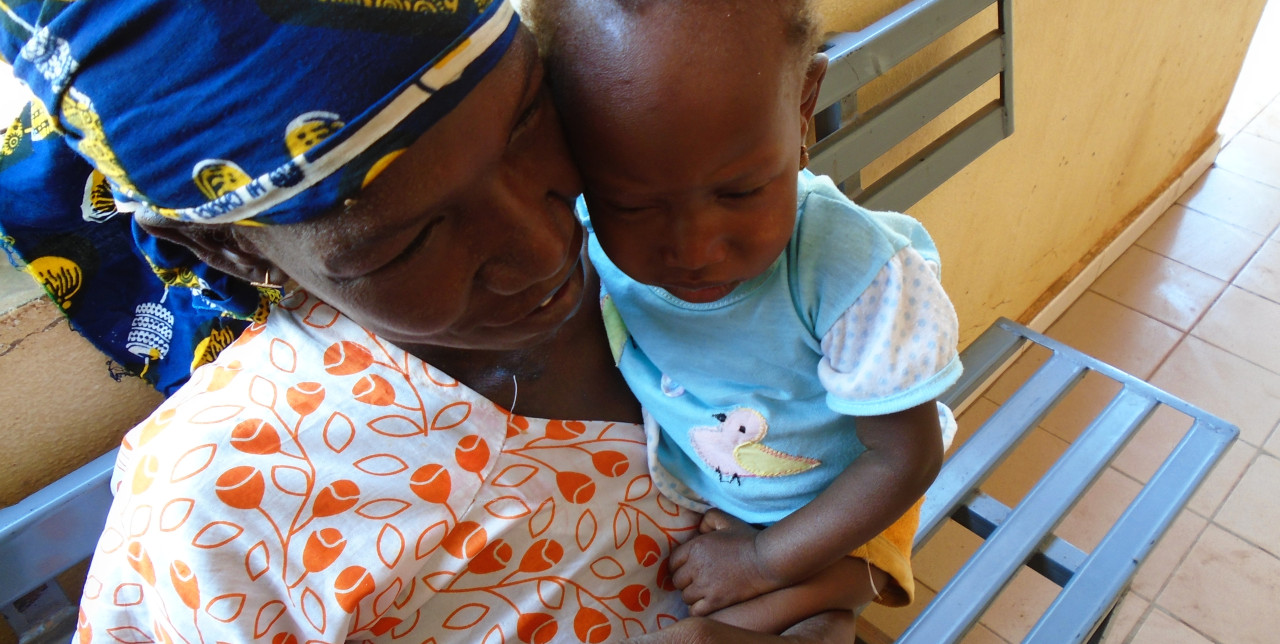02-05-2018 | di COOPI
Mali: the fight against malnutrition continues
Mali is at the centre of conflicts and political crises including a succession of Tuareg rebellions, a coup d’état and the advance of Jihadist groups, linked to AQMI and IS, which exert strong social and economic pressure on the population. Weak institutions and insufficient basic services contribute to a highly insecure climate. The average life expectancy is 58 years, and over 43% of the population lives below the poverty line with a gross national income per capita of 780 US$/year (2016), positioning Mali in the lower band of low-income countries.
Problems also remain relating to access to land, water and pastures, which feed the ethnic and religious divides already present in the country. In a region affected by periodic droughts, chronic food insecurity continues to strike the population. In Mali, 3.6 million people are in a situation of food insecurity and 852,000 children (approximately 1 child in 6) are at risk of global acute malnutrition, 107,000 of whom are at risk of severe acute malnutrition.
In January 2018, the Italian NGO COOPI - Cooperazione Internazionale, thanks to funds from the Italian Agency for Development Cooperation (AICS) launched the project “Strengthening of the integration strategy for sustainability of prevention and taking care of acute malnutrition in Ségou” , continuing the programme for combating child malnutrition it launched in Mali in 2013.
If malnutrition is not eliminated by the age of two, it causes irreparable damage to mental and physical development and the immune system. In the most severe cases, it can lead to death, not only due to lack of food but also to complications in the case of illnesses such as malaria or diarrhea, to which poor hygiene practices are a contributing factor.
This project aims to strengthen the sustainability of free, high-quality care for child malnutrition by national healthcare facilities through material, financial and educational support at 34 Community Health Centres hosting 34 Severe Malnutrition Educational and Nutritional Outpatient Recovery Units (“URENAS”), at the Reference Health Centre in Ségou, location of the Intensive Educational and Nutritional Recovery Unit (“URENI”) to which children requiring recovery are directed, and at Ségou Hospital, to which the most severe cases are transported.
The mothers and children who arrive at these centres receive comprehensive care from COOPI personnel, which begins with a general medical check-up and continues through specific clinical examinations (anthropometric measurements of height, weight and arm circumference, appetite tests and blood glucose tests), finishing with provision of free treatment products (medicines, Plumpy Nut and fortified milk). An outreach session is also organised to raise mothers’ awareness of good practices for feeding newborns and children and of correct hygiene practices, accompanied by distribution of hygiene products.
The project maintains a community approach in order to facilitate recognition of malnutrition and related illnesses through screening, training and awareness-raising activities involving pregnant and breastfeeding women, mothers and accompanying persons of cases of severe acute malnutrition, Community Volunteers, and Community Healthcare Workers. In the month of March alone, 68,604 screenings were performed, in the villages themselves, on as many children aged 5 to 59 months, leading to identification of 996 cases of severe acute malnutrition admitted to the treatment programme of the “URENAS” supported by the project, while 75 cases with serious complications were transported to the “URENI” for intensive treatment.
Screening will be performed not only by the 1120 Community Volunteers distributed over the area of the Ségou Health District but also through training of 8943 women who will be capable of identifying the symptoms of malnutrition. In addition, in order to improve the quality of everyday nutrition, cooking demonstration sessions will be set up to promote dietary variation, use of local products and distribution of a recipe book.
The project’s objective is to ensure free care for all 3313 cases of severe acute malnutrition anticipated according statistics on the Ségou Health District, to raise the awareness of 19,970 mothers on good feeding, breastfeeding and hygiene practices, and to develop the skills of health centre personnel and Community Healthcare Workers through training and free distribution of treatment products.




 Mali
Mali